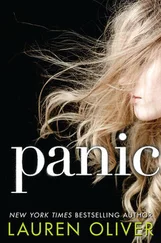You all expect me to die, said Esther when she heard that he was coming. If you think you’re visiting a woman on her deathbed, you’re quite mistaken.
But at his arrival she was overjoyed. Marina had been right — Esther’s wishes shouldn’t have been heeded, as they were not what Esther wished. The anti-Esther had been using Esther’s voice — Pasha had failed to be on the lookout for such a possibility.
Even Esther found the idea of Pasha’s permanent arrival a source of ambivalence. As long as he remained in Odessa, finality was evaded. They’d studied the cases around them — when an entire family was uprooted and replanted in another country — whether it be America, Germany, Israel — and all ties to the motherland severed, the psychological burden was often managed to the detriment of mental integrity. Thus far they’d avoided this burden — by way of a loophole. No strangers were living in their old digs, doing unimaginable violence to their walls, peering out their windows, distorting their left-behind thoughts. If they went back for a visit, they wouldn’t have to loiter at a closed door or a locked gate, gathering the courage to knock and ask for permission to peek inside, or debate whether a hurried scanning of their former premises would be worthwhile at all, especially under the mistrustful, inconvenienced scrutiny of the current residents. Their old apartment belonged to Pasha. Pasha belonged to them.
And it wasn’t just a regular kommunalka — it was only one room (partitioned off with curtains), and most of the space it offered was vertical, not doing them much good except offering the opportunity to complain about the lowness of ceilings in ninety-eight percent of places (the Opera House, Carnegie Hall, Lincoln Center were exempt), but it was situated in the epicenter of Odessa, perched in the most prime spot by Primorskiy Boulevard, overlooking Potemkin Square, a minute from the Steps and Vorontsov’s Palace, two from Deribasovskaya and City Garden. Summers, Pasha relocated to their dacha. This knowledge brought great solace. It was permission to stay sane. Ties hadn’t been severed; Odessa remained theirs. This sense of retention, of not having exchanged or betrayed but simply enlarged in scope, kept virulent immigrant manias at bay. They didn’t need to compensate for what had been irrevocably lost by polarizing into the hyper-Americanized or feverishly nostalgic, to vanity-publish photo-essays or entire book-length declarations of love to their former city, compose odes to Odessa and perform them on Saturday evenings at Restaurant Odessa, form International Odessite clubs or join said clubs, have strokes and sit in wheelchairs outside their building screaming Odessa, Odessa! at passersby with rage and passion and utter incomprehension as to what was going on both around and within.
The chemo was under way by the time Pasha arrived, Esther’s wan curls detaching by the fistful. Daylight infiltrated through to her scalp. She’d bought one of those housedresses that came in countless dizzying print variations and hung on the outdoor racks of discount shops along Brighton Beach Avenue, a purchase that infuriated Marina. Esther was throwing up her hands. First it’s a housedress, then no desire to live. Marina bought a wig for Esther and a geometric summer dress from Bloomingdale’s.
They expected to have to keep her from the housework. They’d permit a little dusting or watering, so she wouldn’t feel useless, but forbid the more physically straining activities. When Esther went for the pail, Marina’s bold voice resounded, We can do that, you must save your energy. Esther didn’t have to be told twice. She returned to bed with a book, leaving the pail out for Marina, as the floors weren’t about to wash themselves.
Pasha’s help would’ve been enlisted, but the reward for reaching his ripe age never having peeled a potato or folded a pair of pants was never having to. No one would make the mistake of even turning on the vacuum cleaner in his presence. He was most useful in distracting Esther, who wasn’t of the if-left-uninterrupted-will-read-in-bed-for-hours temperament. If left uninterrupted, she’d interrupt. Pasha was deployed. Lying side by side, they engaged in a conspiratorial whisper. Occasionally she laughed. A large ship passed over the open waters that were Esther, leaving the surface unsettled long after the ship had gone. And her face, thought Pasha, had the bloated, grayish quality of something that had spent untraceable years at sea bottom.
It proved not true that a housedress — which Esther proceeded to wear both around the house and outside despite the presence of the Bloomingdale’s dress, which even Marina had to admit looked a lot like the housedress once Esther put it on — led to a diminished will to live. Esther’s sole focus became survival. She was so determined that the actual process of living became a distraction from the goal. At mealtimes she reverted to Soviet-style nutrient-density assessment (anything creamy, sugary, buttery of highest value), but instead of giving the choice foods to Marina or Frida kept them for herself. This combination of eating nutritiously and saving her energy made stoic Dr. Muckleberg advise a weight-loss regimen. Esther incorporated grapefruit into her diet.
The family outings were to the hospital, where other people’s conversations were marked by a subdued intensity. It’s good I made you that sandwich, said the small woman with a drinker’s nose as she sat wrapped in a sweater in the air-conditioned cafeteria. The bread isn’t very appropriate, said the small man with the drinker’s nose before proceeding with a very businesslike chewing. Others were peeling hard-boiled eggs and rattling sugar packets, stirring coffee with great determination; still others were reading brochures, becoming informed, asking a question. Esther sat in a snug-fitting armchair that in retrospect would look beige but probably had a specific color, some insane purple. She sat in these armchairs and at the same time refused to touch them. You’d never catch her elbows on the armrests or her fingertips near the fabric — they were holding a book or a paper cup or resting on her knees. Other people touched these armchairs. The problem was, of course, all those others.
Marina touched everything, and everything she touched became hers. How afraid she’d been — but that fear was like a loose thread snipped by the hospital’s sliding doors. As it turned out, she was a valuable sickness companion. For the first time, they were seeing her in her new milieu, and it was enlightening. They had been of the opinion that nursing school was a wrong decision. We just don’t see you as a nurse, they said. On the one hand, they thought it would be too much — the high-intensity environment, the long work hours — and on the other they considered it below her — a nurse. They had better suggestions. If she was going this route, she may as well bite the bullet and go to medical school, but she should also take into account that hairdressers made a good living in the States, and she’d always been so creative with her updos. Once they became regulars on the hospital scene, the offering of alternatives subsided.
Marina never rested her legs or plucked a magazine from the pile. There was always a slippery personage to track down, some bit of information to obtain, a minor error to not overlook. Marina’s voice, unlike those of the others, was loud but never hysterical. Her assured silence was just as soothing as her assured speech. It was only natural that she assume full responsibility for their interactions with doctors, telling them what Esther felt and where and what Esther wanted and how, then telling Esther what the doctors never quite formulated themselves. The Indian doctor hardly spoke, the Australian doctor rattled off warm but unintelligible volumes, and it would’ve been better not to understand the German doctor. Having long stopped seeing patients as humans and disease as something unfortunate occurring within a patient who was human, he was interested only in recruiting the diseases, in whichever package they were delivered to him (brown hair, blond hair, fleshy, thin), for his ongoing, alternating, and evolving experimental studies.
Читать дальше












